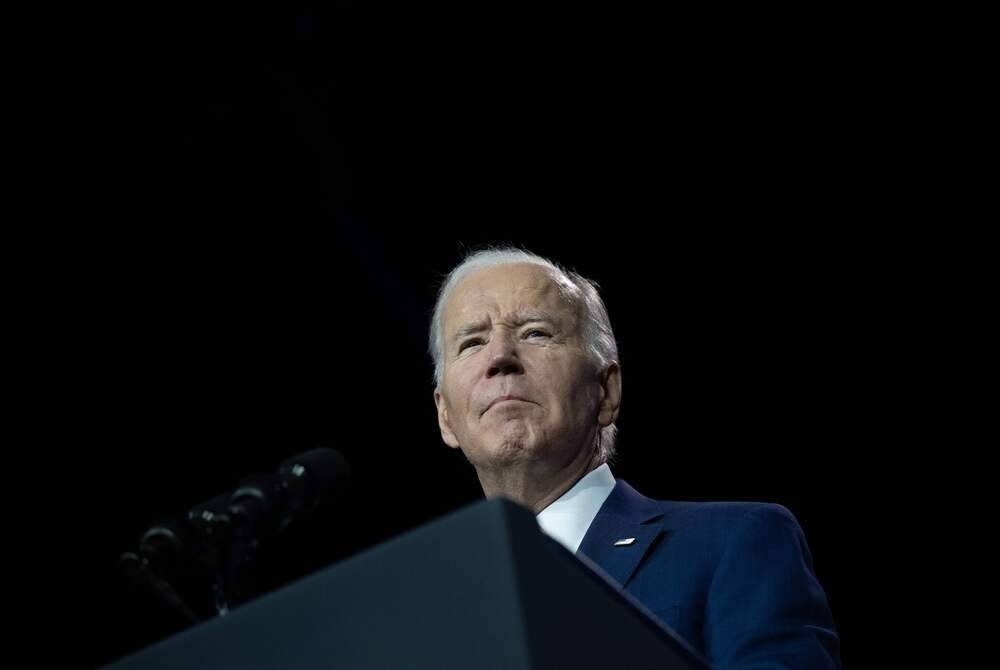Biden's reelection battle is political - but also financial

WASHINGTON, US - For the first time since formally entering the 2024 presidential race, Joe Biden headed Wednesday on a fundraising trip for a contest that could once again top all campaign spending records.
After taking the Republicans to task on the debt ceiling standoff in a speech in the northern suburbs of New York City, the US leader was due in Manhattan for two potentially lucrative receptions with wealthy donors.
One will be hosted by Tony James, the former executive vice chairman of the Blackstone Group, a global asset management firm. The price of admission to Jones' apartment shindig? A cool $25,000 a person, according to CNBC.
Afterwards, Biden will head to a campaign fundraising dinner at the home of businessman George Logothetis.
Outside the United States, such events at swanky homes mixing politics, money and cocktails can seem... unseemly, especially with the head of state in attendance.
In America, money makes the campaigns go around, and a candidate can even be measured by his or her ability to attract political donations - the theory being that if enough influential people are willing to donate, that person is a winner.
Biden's campaign advisors have told The Washington Post that they hope to raise more than $2 billion to help carry the 80-year-old Democrat to a second term in the White House.
In the camp of former president Donald Trump, seen as his most serious potential Republican adversary, aides insist his indictment on 34 criminal charges over hush money payments to porn star Stormy Daniels has only fueled campaign donations.
Open Secrets, a nonprofit organization that tracks campaign finance data, estimates that the 2024 presidential election cycle could be the most expensive in US history.
In 2020, when Biden ultimately defeated Trump, the presidential election cost a whopping $5.7 billion - more than double the amount spent in 2016, the group says.
Of course, campaign contributions don't just come from billionaires and huge companies; in 2020, according to Open Secrets, Biden received more than $400 million from small individual donors - who each gave less than $200.
The US media broadly insists that Biden can once again count on the deep pockets of technology executives and other business heavyweights. But will the donations be more modest this time around? The latest opinion polls contain no good news for Biden, who must overcome voter concerns about his age and a higher cost of living.
One recent poll conducted by ABC News and The Washington Post reveals that 68 percent of Americans surveyed believe the Democrat is too old for a second four-year term. Just 44 per cent think the same thing about the 76-year-old Trump.
And Biden's approval rating has hit a new low of 36 percent, the poll revealed. That is worse than numbers seen for Gerald Ford, Jimmy Carter and Trump at the same point in their presidencies. All three failed to win reelection.
Biden must therefore be sure not to lose the fundraising battle to Trump, who formally launched his bid for a second term in the Oval Office late last year.
US campaign law makes it difficult to know exactly how much any one candidate has on hand, with various limitations on donations set by the Federal Election Committee, but there are multiple ways an individual can contribute.
Most of the money flows through political action committees - traditional PACs or so-called Super PACs - which play a fundamental, though often murky, role.
Super PACs are freed from certain restrictions provided they do not give the money directly to a candidate or coordinate how funds are spent with a candidate. That allows the corporate money to pour in.
These political investment funds play an essential, albeit often underground, role in the campaign.
The two receptions Biden took part in Wednesday will benefit so-called Joint Action Committees, organizations that are increasingly popular in the political world, and which make it possible to raise larger sums.
Trump says he has raised about $18 million from November 15 to March 31, according to data released to the public.
But his campaign says he raised nearly as much - more than $15 million, according to Politico - in the two weeks following his indictment in New York on March 31 for allegedly falsifying business records.
On Tuesday, Trump was found liable for sexually abusing and defaming an American former magazine columnist and ordered to pay $5 million in damages - it remains to be seen how that decision might affect his campaign or his fundraising.
As for Florida's Republican governor Ron DeSantis, who could soon join the 2024 race, he reportedly could be sitting on a campaign war chest of more than $100 million. - AFP














